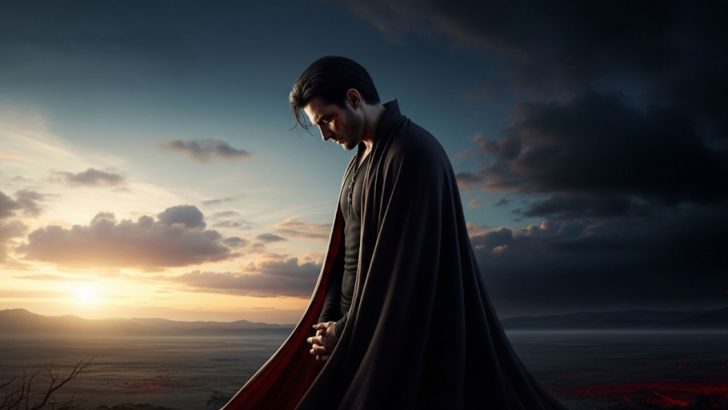Lucifer is often portrayed as confident, powerful, and proud. But, behind the rebellion and the rage, there’s a quieter truth that many overlook: loneliness.
After being cast out of Heaven, Lucifer wasn’t just punished, he was isolated. Separated from the divine light, his angelic siblings, and everything he once knew, his fall came with emotional consequences too heavy for most myths to explore.
If you’ve ever wondered what it really felt like to go from Heaven’s brightest to Hell’s loneliest, here are 10 facts that dive into the quiet ache beneath the fire.
1. He Lost Every Friend He Ever Had Overnight
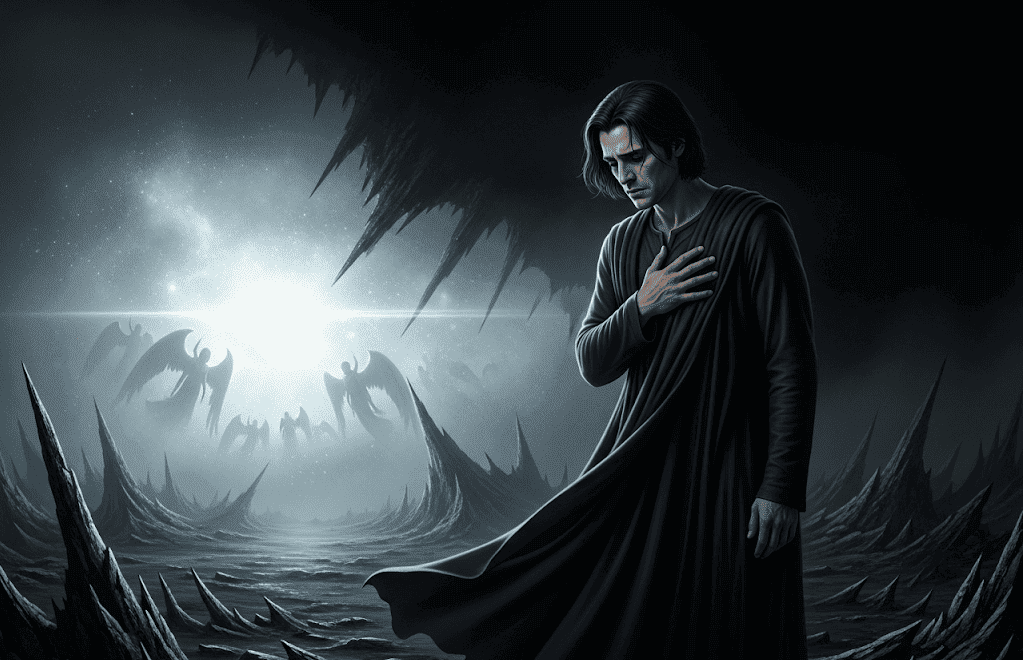
Lucifer didn’t just lose Heaven, he lost his family. Angels he once fought beside, sang with, and trusted turned away from him the moment he rebelled.
Imagine being adored one day and shunned the next by those you loved the most. Some say that even Michael, his once-closest brother, looked at him with sorrow rather than hatred during the Fall.
That kind of loss isn’t loud, it’s silent, echoing forever. For Lucifer, loneliness began with betrayal, not just from God, but from everyone he thought would understand him.
2. The Silence After Heaven Was Deafening

Heaven, as myth describes it, is filled with music, choirs, harmony, and divine sound. When Lucifer fell, that music stopped for him.
What replaced it? Silence. Crushing, empty silence. The echoes of what once was became his only soundtrack.
That absence was more than punishment. It was a reminder of everything he lost. In some interpretations, even the demons he later led couldn’t fill that void.
They followed him, yes, but they didn’t understand him. That silence is the kind that gnaws at the soul.
3. Pride Became a Shield Against the Pain

Lucifer is the embodiment of pride, but pride wasn’t always his default. After the Fall, when guilt and longing became unbearable, pride became a mask.
It’s easier to act like you don’t care than to admit you miss Heaven. Easier to command than to grieve. So Lucifer built his kingdom of fire and thrones, turning his ache into armor.
But behind that pride is still the same lonely angel, wondering what might’ve happened if someone had just… listened.
4. He Wasn’t Welcome Anywhere

After falling, Lucifer didn’t belong to Heaven anymore, but he didn’t fit in Hell yet either. Hell, in many myths, wasn’t ready for him.
And Earth? Too divine to hold his pain, too human to offer comfort. He was stuck between worlds, without a home.
That in-between space is often described as a kind of purgatory, emotionally and spiritually. For Lucifer, it wasn’t just banishment, it was being truly homeless for the first time in all eternity.
5. He Missed God, Even If He Wouldn’t Admit It

Yes, he rebelled. Yes, he defied God’s will. But underneath all that, Lucifer was once God’s favorite. The connection they had was deep, personal, and spiritual.
Losing that wasn’t just a political shift—it was like losing a parent, a mentor, a source of identity. In many myths, Lucifer never truly stopped loving God.
He just couldn’t reconcile that love with his need for freedom. That tension created a grief so profound it turned into rage, and then into loneliness.
6. Time Doesn’t Heal in Hell
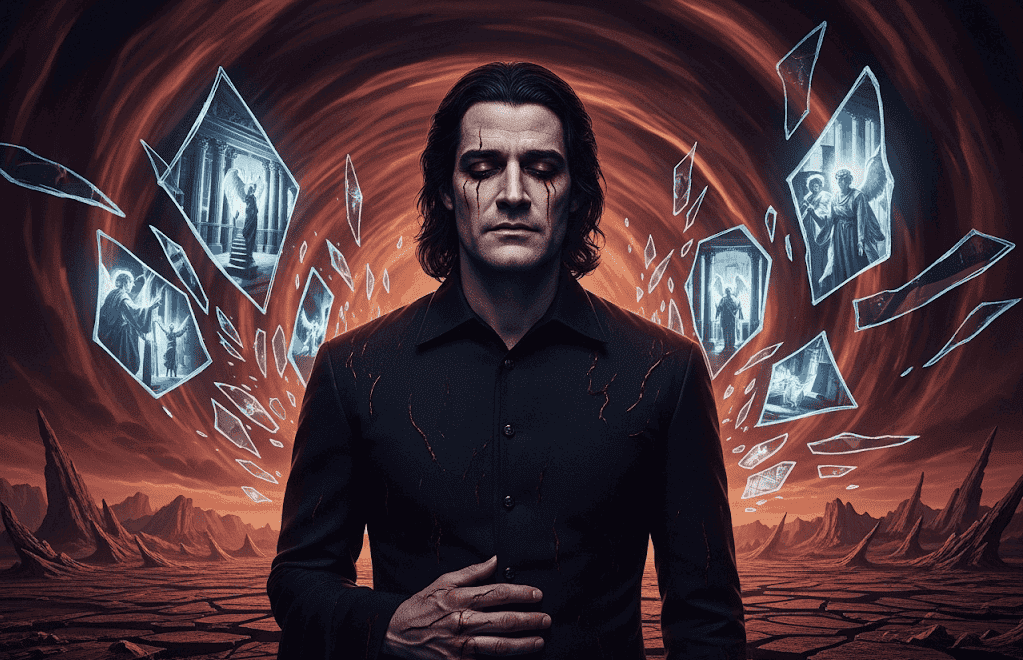
People like to say time heals all wounds, but not in the underworld. Down there, time stretches. Every second is heavier.
And for someone like Lucifer, who remembers every detail of Heaven, time only deepens the ache. There’s no forward motion, just an eternal replay of what once was.
So while the world above moves on, Lucifer sits with memories sharper than blades, aging without change. That kind of stasis is its own cruel form of loneliness.
7. Even His Followers Can’t Fill the Void
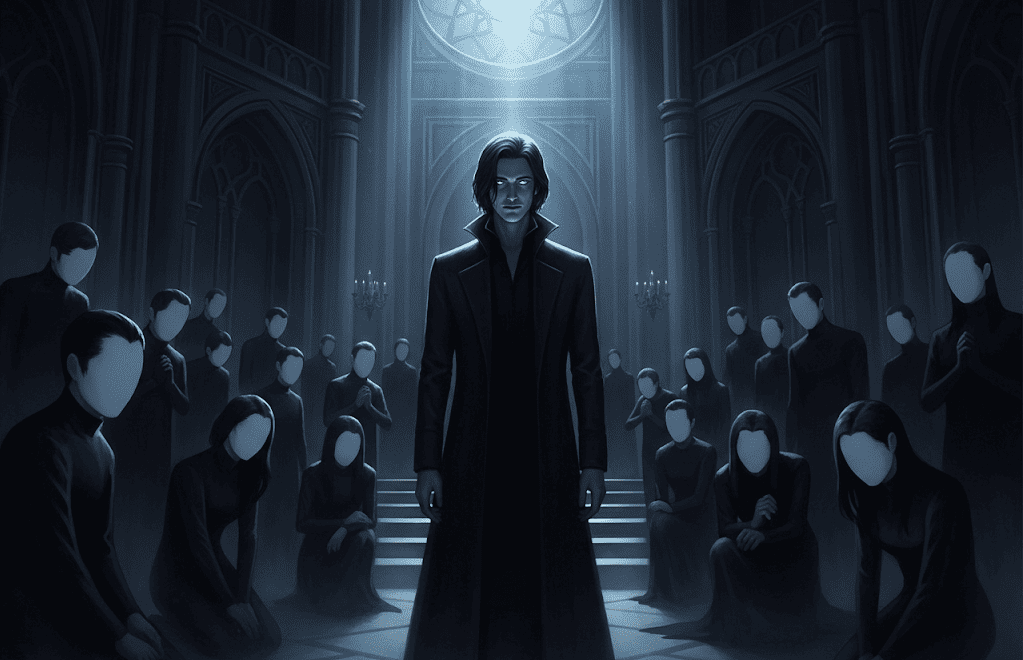
Demons, fallen angels, worshippers, Lucifer has plenty of company. But none of them can replace what he lost.
These beings admire or obey him, but they don’t see him. Not the way Michael or Gabriel once did. He may be surrounded, but he’s still emotionally alone.
It’s like being the only real person in a room full of shadows—present, yes, but not known. That’s the kind of loneliness that fame and power can’t fix.
8. He Writes His Loneliness Into the World

In some legends, Lucifer expresses his sorrow not with words, but with whispers, subtle touches on Earth that reflect his inner grief.
Songs of longing, storms, moments of heartbreak that seem to come from nowhere. His loneliness becomes a quiet background hum in the world—a longing that humans sometimes feel without knowing why.
It’s as if he’s still trying to connect with something, anything, beyond the walls of Hell.
9. He Often Watches, But Can’t Interact

Lucifer, according to some stories, watches the world from afar. He sees people fall in love, find joy, reconnect, heal – all the things he no longer experiences.
But he can’t interfere. He’s like a ghost of glory past, haunting the living with a longing he can’t satisfy.
That voyeuristic exile is its own kind of torture: witnessing what you crave, day after day, but never touching it again.
10. His Loneliness Is What Makes Him Most Human
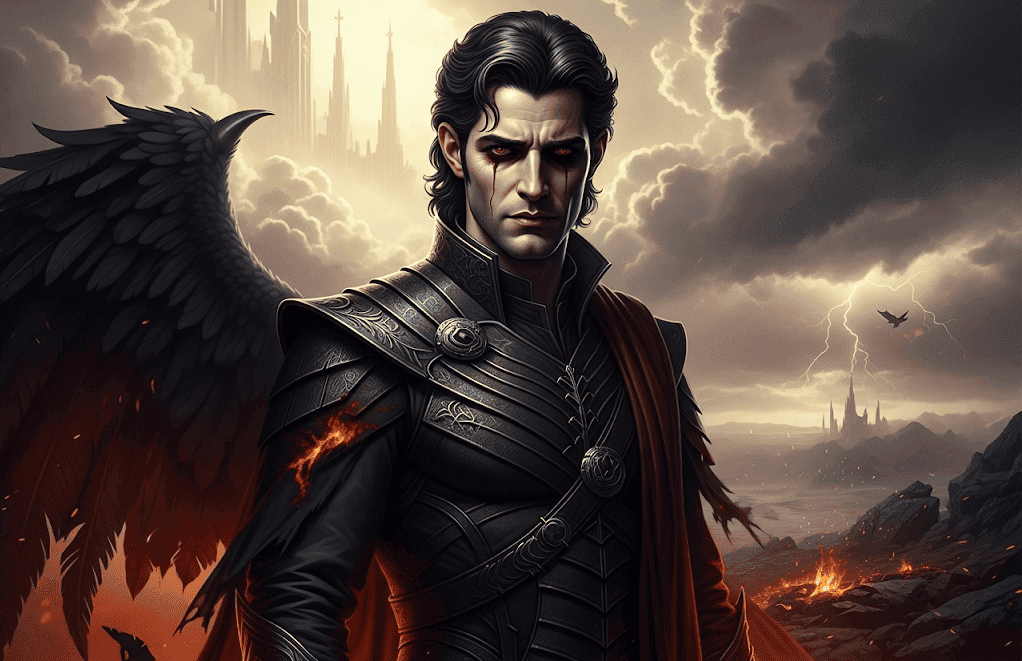
Here’s the twist: Lucifer’s loneliness, for all its pain, makes him relatable. It strips away the horns and flames and reveals something deeply human.
Who hasn’t felt cast out? Misunderstood? Longing for something that once felt like home? Lucifer’s myth, at its core, isn’t just about rebellion; it’s about loss.
And in that aching silence, we find a surprising mirror: a figure who once soared, who fell, and who still, somehow, longs to belong again.

自出生以来,我一直感觉到自己与神灵有着紧密的联系。作为一名作家和导师,我的使命是帮助他人在最黑暗的时刻找到爱、幸福和内心的力量。

